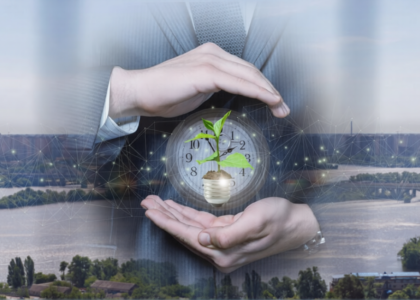Women have long been at the forefront of global development, particularly in rural and developing areas. Their contributions, often overlooked, are now being recognized as crucial to achieving the United Nations Sustainable Development Goals (SDGs). Women play a vital role in sustainable development by managing natural resources, driving local economies, and fostering community resilience. In this blog post, we will explore the importance of gender equality in sustainable development and how empowering women can accelerate the achievement of global sustainability goals.

Women as Stewards of Natural Resources
In many rural communities, women are the primary managers of natural resources such as water, forests, and farmland. They are responsible for tasks like gathering water, sourcing firewood, and cultivating crops, which makes them crucial stewards of the environment. Their intimate knowledge of the land allows them to implement sustainable practices that protect ecosystems while supporting local food security. For instance, women in regions like sub-Saharan Africa often adopt sustainable agricultural techniques, such as crop rotation and organic farming, which enhance soil health and conserve biodiversity.
However, women’s contributions are often hindered by a lack of access to resources, education, and decision-making power. Gender equality in sustainable development starts with addressing these barriers. By ensuring that women have equal access to land, technology, and financial resources, we can unleash their potential to lead efforts in environmental conservation and climate resilience.
Women as Economic Drivers
Women’s participation in the workforce, particularly in rural areas, is essential for economic development. In developing countries, women are often involved in small-scale farming, handicrafts, and informal trade, contributing significantly to household income and local economies. Empowering women economically not only improves their own livelihoods but also has a ripple effect on entire communities. Research shows that when women have control over resources, they are more likely to invest in their families’ education, health, and well-being, leading to broader social benefits.
To drive sustainable development, it is essential to provide women with economic opportunities through access to education, entrepreneurship programs, and fair trade markets. Supporting women-led businesses, especially those that promote eco-friendly products and services, can foster a circular economy that prioritizes environmental sustainability.

Gender Equality: A Key to Achieving Global Sustainability Goals
The SDGs explicitly recognize the link between gender equality and sustainable development. Goal 5 (Gender Equality) is not only a standalone objective but also a critical enabler of other goals, such as ending poverty (Goal 1), ensuring access to clean water (Goal 6), and combating climate change (Goal 13). Without addressing gender inequalities, it will be impossible to achieve these global targets.
Involving women in decision-making processes at local, national, and global levels is essential for creating inclusive and effective sustainability policies. Women bring unique perspectives to the table, particularly regarding community-based solutions to environmental and social challenges. For example, women-led grassroots movements have been instrumental in advocating for climate action, promoting renewable energy, and championing environmental justice.
Conclusion
The role of women in sustainable development cannot be overstated. By empowering women, especially in rural and developing areas, we can accelerate the progress toward achieving global sustainability goals. Investing in gender equality is not only a matter of social justice but also a strategic necessity for building a sustainable future. Ensuring that women have equal access to resources, economic opportunities, and leadership roles will unlock their full potential as drivers of change in the fight for a sustainable and equitable world.






